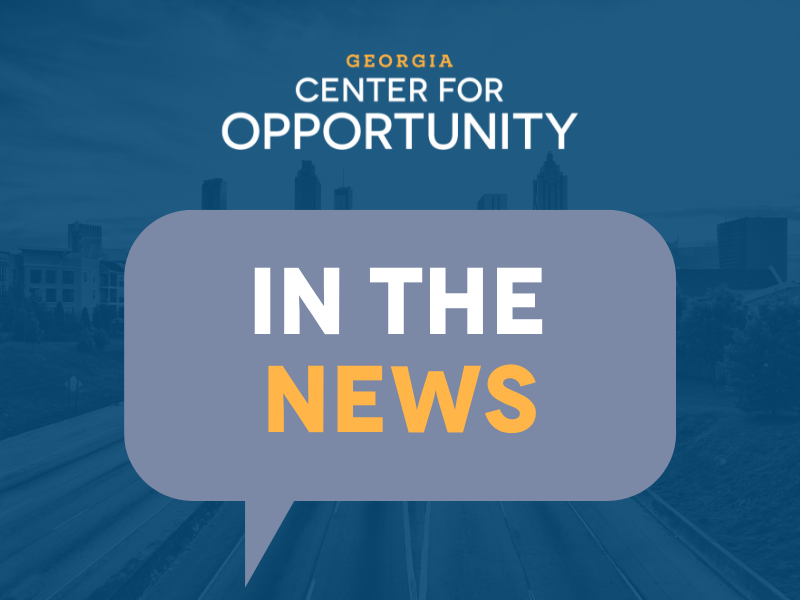Tuesday, March 15, was a sad day for kids in Georgia.
That’s the day when the Georgia Senate voted down a bill to create Promise Scholarships. Eight Republicans joined all Democrats in rejecting the scholarships, which would have offered families up to $6,000 a year for approved education expenses. Another six Republicans chose to abstain from voting, knowing that doing so would kill the bill.
Promise Scholarships would step far beyond a typical voucher by fully putting parents in the driver’s seat when it comes to their child’s education. The funds could have been used for private-school tuition, but there would have been added flexibility depending on each family’s unique needs, extending to paying for things like tutoring, specialized therapies, or homeschool co-ops.
It’s unjust that the best interests of Georgia’s schoolchildren have once again fallen prey to politics and special-interest groups. While some lawmakers were twisting arms to get votes to pass gambling programs to benefit a handful of people, others were voting “no” on Promise Scholarships that would allow tens of thousands of kids to flourish.
Simply put, a vote against S.B. 601 was a vote against the many Georgia families who desperately need help. Particularly as our state emerges from the COVID-19 pandemic where so many students are left behind, it’s unconscionable that we would deny this lifeline to families.
What’s also unconscionable is why politicians would reject educational freedom given that the vast majority of Georgians want it.
A recent poll from GeorgiaCAN found that 72% of respondents favor “expanding educational options by allowing a child’s state education dollars to follow that student to the school that best fits their needs, whether that is public, private, magnet, charter, virtual, or homeschool.” Support cut across party lines, with 79% of Republicans in favor, 78% of Independents, and 64% of Democrats.
Do Georgians favor the idea of Promise Scholarships? That same GeorgiaCAN poll put support for Promise Scholarships at 59%. Public school parents voiced even stronger support, with 67% in favor.
Those results are in line with other recent polling showing that between two-thirds and three-fourths of Georgians support the core ideas of educational opportunity for all students, not just those blessed with a high income or who live in the right zip code. The bottom line is that in our era of sordid political discourse and deep divides between the parties, there are few issues that garner as much bi-partisan support as educational opportunity and equity.
One of the attributes that makes Georgia a great place to live — and a great place to relocate to from other areas of the country — is our diverse and growing set of educational options. It’s the 21st century, and our policymakers recognize that a one-size-fits-all approach no longer works, least of all when it comes to the education of our children.
But while we’ve had important progress over the last few years, we need to keep moving forward. Traditional public schools will remain the right option for most families, but a swiftly growing number of families are choosing alternatives — public charter schools, private schools, or homeschools. As a state, our objective must be to support students and families in the educational environment that works best for them. Our priority must be funding student education, not systems of education that aren’t meeting the needs of every child in our state.
That’s precisely why we need the flexibility provided by Promise Scholarships. Passing Promise Scholarships would have put Georgia at the forefront nationally of giving all children the opportunity for a great education. And politicians running for office this year would be wise to pay attention. For evidence, look no further than Virginia’s recent gubernatorial election, when now Gov. Glenn Youngkin swept into office on a platform of empowering parents.
Remember, the midterm elections are just around the corner: All 56 state Senate and 180 state House seats up for grabs. Meanwhile, parents are clamoring for educational options like never before.
The question is, will Georgia politicians listen? The answer appears to be a resounding no.
Originally Posted In Real Clear Policy





